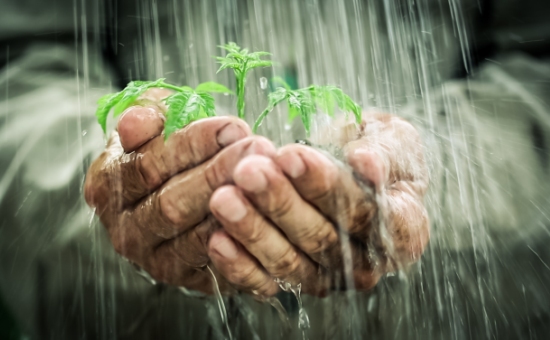Shocking eco facts
Carbon dioxide is commonly viewed as “a bad thing” but of course it’s absolutely essential for life on Earth. Plants need CO2 to exist and the gas forms a crucial part of the Earth’s atmosphere. However, there’s a delicate balance to be struck and currently people are putting too much of it into the mix, which most experts predict will lead to further global warming.
As we are beginning to understand, a small rise of two degrees Fahrenheit is expected to impact on food production, leading to 5-15% lower crop yields, and increase the risk of flooding caused by rainfall by between 3% and 10%.
Depending on what we do over the next few decades, many experts believe that the temperature on the planet will rise on average by between two and 12 degrees F by 2100.
Even now in Britain, more than 300 species of plant face extinction and across the globe, one in six mammal species are in danger of being wiped out.

Here are some more shocking eco facts that we can all think on and act to change:
· Every one of us uses around 55,000 litres of water every year on average.
· A leaking tap wastes up to 13 litres of water every 24 hours.
· It takes 50 times the energy that batteries produce to manufacture them.
· Each of us, on average, bins our body weight in rubbish every three months.
· Power showers can use even more water than a bath. Eco shower heads that mix air with water flow can cut consumption by more than 50%.
· Replacing a traditional 100 watt light bulb with an LED bulb, spotlight or downlight can cut electricity consumption by up to 90%, paying for itself through savings in the first year then continuing to save energy year after year, with a lifespan of up to 50,000 hours.
· Installing just three LEDs in every British household would deliver enough savings to cover the costs of street lighting across the country.

· People can cut up to 10% from their heating bills by turning their thermostats down by a single degree.
· British homes spend £2.2 billion annually on electricity to freeze or cool their food and drink. A top-rated energy efficient fridge-freezer uses 60% less energy than older appliances.
· British households consume nearly a third of the country’s total fuel annually and produce around the same proportion in CO2 emissions.
· Appliances and gadgets left on standby waste around £900 million a year in energy.
· About 30% of energy used in Britain and 38% of the country’s carbon emissions are for transport.
· Soft car tyres can add 5% to fuel bills.
· Around 30% of car trips are for work.
· Public transport uses less than half the fuel per person per passenger mile than private vehicles.
· Air travel produces almost as much CO2 annually as the amount generated in Africa.
· Only 15 years ago, food in Britain travelled half as far as it does now.
· Over the last 130 years, the ten warmest years have been since 1978.
· A plastic bottle degrades in around 450 years.
· Britain uses around six billion glass bottles and jars every year
· 500 million plastic bags are used every week in the UK, with each bag taking up to 1,000 years to degrade fully.
· Wales reduced plastic bag use by 90% through a law directing shops to charge 5p per bag.
· Lake Windermere, the UK’s largest lake, could be filled with the country’s rubbish in only eight months.
· For every product purchased, 16% of the cost is for packaging.
· Nearly 50% of the contents of dustbins in Britain could be recycled.

· Each year, Britain produces around 15 million tonnes of food waste, with nearly half of that from households.
· By doubling the number of sofas reused in Britain, the country would save roughly 52,000 tonnes of CO2.
Simple energy-saving steps and easy changes in behaviour can take the sting out of these worrying climate statistics.
Mark Sait is managing director of SaveMoneyCutCarbon.com, a full-service efficiency partner helping businesses and households reduce energy and water consumption, and cutting carbon emissions to improve sustainability.


0 Comments
Recommended Comments
There are no comments to display.